| Srl | Item |
| 1 |
ID:
099123
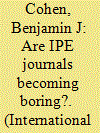

|
|
|
| 2 |
ID:
134012
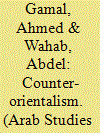

|
|
|
|
|
| Publication |
2014.
|
| Summary/Abstract |
Retranslation is a foundational postcolonial metaphor that might highlight the new horizons of transcultural and transnational relations and their political backdrop. By the same token, Arab-British migrant narratives are of special relevancy to both translation and cultural studies, since migrant identity and writing are closely associated with the politics of translation, rewriting, relocation, and cross-cultural pollination. This contribution explores the role of counter-discourses in general and counter-Orientalism in particular in the contemporary fiction of one of Arab-British writers. In particular, the article focuses on the textual representations of invisible Arab men and women and the East-West cultural exchange in the writing of the Sudanese feminist and Scottish immigrant Leila Aboulela (1964-). Drawing on the counter-traditional concept of translation as engagement rather than transfer, this article attempts to spotlight the aesthetic and political parameters of cultural translation in Arab-British literature represented by Leila Aboulela's The Translator (1999) and Lyrics Alley (2010). Many studies have examined the (mis)representation of Arabs in Western Orientalist narratives, but very few have probed how Arab émigrés have deftly attempted to engage with Orientalist narratives by restructuring new identities and critically hybridizing unexampled cultural models. In other words, counter-Orientalism implies appropriating Orientalist stereotypes of space, history, identity, and gender in counter-narratives that seek to demythologize and therefore de-Orientalize Arab subjects.
|
|
|
|
|
|
|
|
|
|
|
|
|
|
|
|
| 3 |
ID:
158953
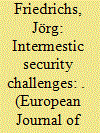

|
|
|
|
|
| Summary/Abstract |
Intermestic security challenges arise when there is concern in a country that a dissatisfied minority relies on transnational bonds with a foreign kin group for support. They result from ethnic and/or ideological affinities translating into foreign support seen as problematic, and they are aggravated when the dissatisfied minority is able to raise territorial claims. This can lead to complications not only in domestic politics, but also in international relations (hence, the term ‘intermestic’). Intermestic challenges can escalate into civil war and other political calamities, but they can also be managed by governments. This article develops a theoretical model and discusses it with regard to China and its Muslim-majority neighbouring countries. To the west of China, transnational bonds of Uyghur Muslims in Xinjiang with co-ethnics and coreligionists in Central Asia, Pakistan, and Afghanistan complicate Chinese relations with those countries. In the southeast, transnational bonds of ethnic Chinese in Indonesia and Malaysia with their ancestral homeland have complicated Indonesian and Malaysian relations with China. While the cases have followed different trajectories, Beijing has managed either challenge rather successfully. The theoretical model developed and the management strategies discussed are likely to be useful in other contexts.
|
|
|
|
|
|
|
|
|
|
|
|
|
|
|
|
| 4 |
ID:
061506
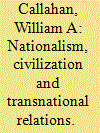

|
|
|
| 5 |
ID:
077327
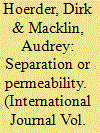

|
|
|
| 6 |
ID:
067213
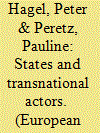

|
|
|
| 7 |
ID:
141272
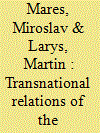

|
|
|
|
|
| Summary/Abstract |
This article describes and analyses the transnational relations of Russian extreme right entities. It classifies the Russian extreme right into categories according to their ideological orientation (ethnonationalism and civilisational nationalism) and forms of activity (political parties and interest groups, intellectuals, the autonomous neo-Nazi scene, and paramilitary formations). For each category important contacts are described in terms of the travels abroad of Russian extreme right activists, visits by foreign extremists to Russia, and the establishment of transnational organisation branches in Russia. The article concludes that although so far the Russian extreme right has mostly had ad hoc contacts abroad, it has been involved in the gradual building of stable networks.
|
|
|
|
|
|
|
|
|
|
|
|
|
|
|
|
| 8 |
ID:
145864
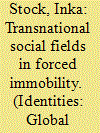

|
|
|
|
|
| Summary/Abstract |
This article explores the relationship between forced immobility and the transnational identity of young Sub-Saharan African migrants in Morocco. The data presented in this article suggest that the extent to which people are able to make their transnational social fields work for them depends on the political, legal and social environment they find themselves in and the position they occupy within their host and home communities. The article demonstrates that such factors influence mobility options and the use of modern technologies among young Sub-Saharan African migrants in Morocco. They also lead to changes in the dynamics of their contact and relationships with family members in the home communities, which can become fractured over time. This means that life in transnational social fields can have a negative effect on the young migrants’ view of themselves and on their life course.
|
|
|
|
|
|
|
|
|
|
|
|
|
|
|
|